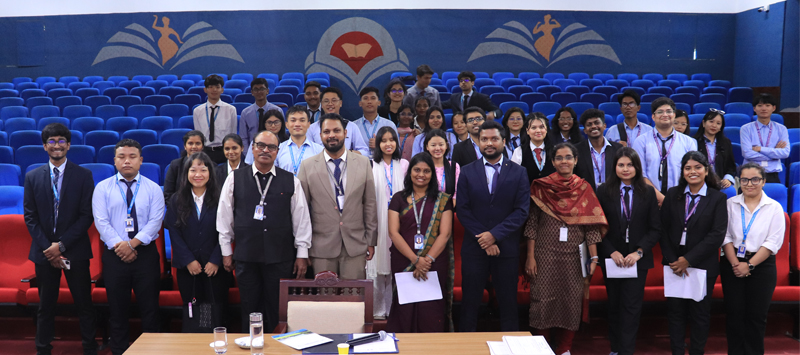
Sustainability Beyond the Podium: My Takeaways from ICEBS 2024
 |
Parnava Ghosal 24MECO21, MSc. Economics Department of Economics School of Commerce, Accounting & Finance Kristu Jayanti (Deemed to be University) |
When I first walked into the 3rd International Conference on Economics, Business, and Sustainability (ICEBS 2024), organised by the Department of Economics, I expected the usual: keynote speeches, dense research papers, and a lot of technical jargon. What I didn't expect was how much the event would make me pause and rethink what sustainability means in economics.
As an MSc Economics student, I often find myself buried in models and theories about growth functions, equilibrium, and regressions. Numbers give clarity but can also distance us from the human and ecological realities those numbers represent. ICEBS shifted that lens for me. For once, sustainability wasn't a chapter at the end of a syllabus or a footnote in policy. It was the central, urgent question: how do we design growth that doesn't destroy its own foundation?
One of my strongest takeaways was the reminder that economics is always about trade-offs. We often chase GDP growth as the ultimate marker of progress, but the hidden costs, climate risks, inequality, and exhausted natural resources rarely make it to the same headline. At ICEBS, I began to see sustainability not as a constraint but as an opportunity to rethink what "growth" could mean.
The paper presentations were equally eye-opening. Listening to fellow researchers made me realise how broad the scope of sustainability really is. It's not just about green energy or carbon taxes. It's about agriculture, trade, finance, governance, and how businesses build trust. Each perspective added another piece to the puzzle, reinforcing that no single discipline or sector can solve this alone.
The most powerful reflection for me was this: economics loses its meaning if it forgets people. Sustainability is not just about future generations; it's also about today's small farmers, workers, and communities disproportionately carrying the costs of environmental degradation and policy blind spots. We've missed the point if economics cannot give them a fair deal.
Walking out of the conference, I felt a mix of responsibility and possibility. Responsibility, because as students, we are the ones who will inherit these challenges. Possibility, because sustainability is not just a crisis, it's a chance to rewrite the story of development.
ICEBS 2024 wasn't just an academic event for me. It was a reminder that every dataset has a human story, every policy has ripple effects, and every decision, big or small, moves us closer to or further away from a sustainable future.
And maybe that's the real lesson: sustainability isn't something to be spoken about from a podium; it's something to be lived, questioned, and built into the way we practice economics every single day.